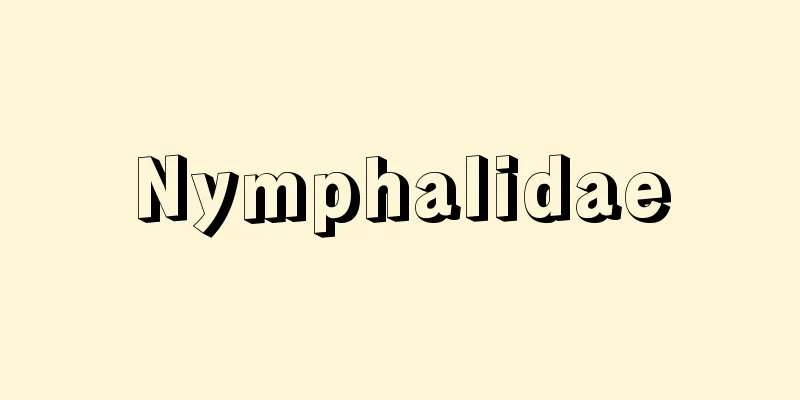Mastaba - Mastaba (English spelling)

|
An ancient Egyptian bench-shaped tomb. It consists of a superstructure and a substructure (underground part). The superstructure is rectangular, with steeply sloping sides and a flat top. The four corners are aligned in the east-west and north-south directions, and the longer axis faces north-south. This tomb style was created in the First Dynasty, and the structure was originally made of sun-dried bricks, but was eventually replaced by stone. In the Second Dynasty, the size and design became more elaborate. It was not exclusively used for royal tombs, and the tombs of high-ranking officials were also built in this style. The underground structure consists of three elements: a shaft for placing the deceased, an altar room for placing offerings and performing rituals, and a special room (serdab) for placing statues of the deceased. The walls are decorated with reliefs depicting life on earth. Some large tombs have a superstructure with a side length of 83 meters and 58 rooms underground. Giza (Gizeh) is home to a large group of mastabas lined up in an orderly fashion. Mastabas were used as a form of tomb for high-ranking officials and aristocrats until the Middle Kingdom after they produced the step pyramids, the royal tombs of the Third Dynasty. [Denroku Sakai] Mastaba of the tomb of the court official Perneb (relocated and reconstructed). Old Kingdom period (around 2381-2323 BC). Limestone. Height 482.2 cm. Memphis, Egypt . Collection of the Metropolitan Museum of Art . Mastaba Underground part of the tomb of the court official Perneb (relocated and reconstructed). Old Kingdom period (around 2381-2323 BC). Limestone, painted. Height 482.2 cm. Saqqara, Memphis, Egypt . Collection of the Metropolitan Museum of Art . Mastaba (altar room) Source: Shogakukan Encyclopedia Nipponica About Encyclopedia Nipponica Information | Legend |
|
古代エジプトのベンチ形墳墓のこと。上部構造と下部構造(地下部分)とからなり、上部構造は長方形で、側面は上に向かって急勾配(こうばい)の斜面をなし、頂上部は平坦(へいたん)になっている。四隅は東西、南北の方位に沿い、長いほうの軸線は南北に向いている。第1王朝に生まれた墳墓形式で、建造物は当初は日干しれんがであったが、やがて石に移った。第2王朝では規模も設計も精巧なものとなった。王墓の独占形式ではなく、高官の墓もまたこの形式でつくられた。地下構造は死者を納める竪坑(たてこう)、供物を置き祭事を営む祭壇室、死者の彫像を納める特別室(セルダブ)の3要素からなり、壁面にはこの世の生活を描いたレリーフが施された。大型のものには、上部構造が一辺83メートルの長さをもち、地下に58室を備えているものがある。ギザ(ギゼー)には整然と並ぶ一大マスタバ群がある。マスタバは第3王朝の王墓、階段ピラミッドを生み出したのち、高官や貴族の墓の形式として中王国時代まで愛用された。 [酒井傳六] 宮廷役人ペルネブの墓のマスタバ(移築再現)。古王国時代(紀元前2381~前2323年ころ) 石灰岩 高さ482.2cm エジプト メンフィス サッカラメトロポリタン美術館所蔵"> マスタバ 宮廷役人ペルネブの墓の地下部分(移築再現)。古王国時代(紀元前2381~前2323年ころ) 石灰岩 彩色 高さ482.2cm エジプト メンフィス サッカラメトロポリタン美術館所蔵"> マスタバ(祭壇室) 出典 小学館 日本大百科全書(ニッポニカ)日本大百科全書(ニッポニカ)について 情報 | 凡例 |
Recommend
erythrite
…In Japan, it is found in deposits formed at rela...
Ethanol
...It is often simply called alcohol, or ethanol....
Inti Raymi - Inti Raymi
In the Inca ceremonies, the creator god, the sun,...
Osamu Kimata
Poet and Japanese literature scholar. Born in Shi...
River pollution
For humans, rivers are one of the most familiar wa...
Pierre de Ronsard
French poet. Leader of the Pleiade movement. Youn...
Augusta National Golf Club
In 1980, Isao Aoki competed with Jack Nicklaus fo...
New Year - Nenshi
Greetings and gifts given at the start of the new...
India-Pakistan War
⇨ India-Pakistan War Source: Obunsha World History...
Korenobu Ouchi
Year of birth: Year of birth and death unknown. A ...
Hashioka Kyutaro
A shite actor of the Kanze school of Noh. Born in...
Jo Sukenaga
Year of death: 1181 Year of birth: Year of birth u...
Arima Ujinori
Year of death: December 12, 1736 (January 24, 1736...
"Omi Genji (■1) Lecture" - Omi Genji Shikata Koshaku
...Of these, "Nanban Tetsu Goto Menuki"...
Julian year - Julian year (English spelling)
The length of a year in the Julian calendar, i.e. ...









